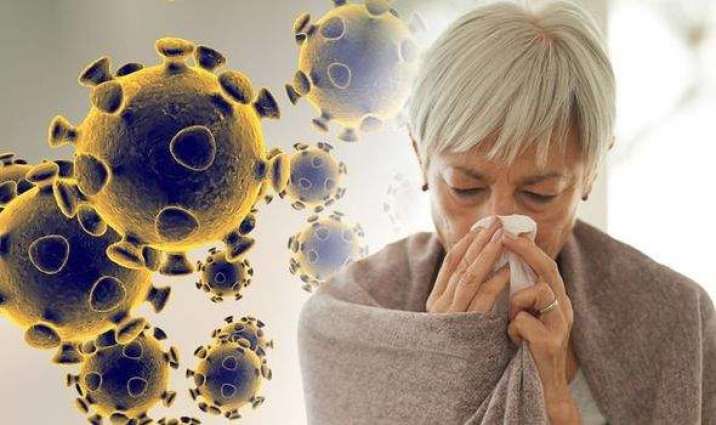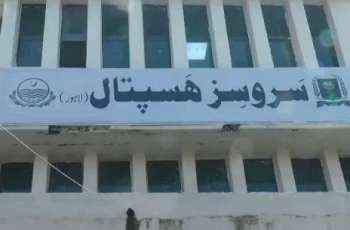There have been 107,954 reported cases so far in 101 countries, including 3666 deaths and 60923 recovered patients.
Write: Dr. Shaukat Chaudhary
Scientists identified the new novel type of virus COVID-19 is the infectious diseases caused by a coronavirus (CoV) , a family of viruses that causes respiratory infections to include the common cold to more serious diseases that are Middle East Respiratory Syndrome (MERS-CoV) and Severe Acute Respiratory Syndrome (SARS-CoV). Coronavirus (COVID-19) outbreak cases worldwide: The current outbreak was first reported in Wuhan, China, on Dec 31, 2019. There have been 107,954 reported cases so far in 101 countries, including 3666 deaths and 60923 recovered patients. There have been fifteen reported cases in Pakistan of which one patient has recovered and been allowed to join his family. It’s necessary to understand SARS & MERS: MERS-CoV is a viral respiratory illness transmitted from dromedary camels to humans it was first reported in Saudi Arabia in 2012. SARS-CoV is a viral respiratory illness caused by a coronavirus called SARS-associated coronavirus (SARS-CoV). SARS was first reported in Asia in February 2003. SARS CoV was transmitted from civet cats to humans as a declared global outbreak. WHO says coronavirus death rate is 3.4% globally, higher than previously thought. How long is the incubation period for Covid-19: The “incubation period” means the time between catching the virus and beginning to have symptoms of the disease. Most estimates of the incubation period for COVID-19 range from 1-14 days. Life span: Coronavirus can survive at 26°C (78.80 °F) for 6 months & with the rise in temperature Covid-19 cannot survive. Sign & Symptoms: Fever, tiredness, and dry cough. Some patients may have aches and pains, nasal congestion, runny nose, sore throat or diarrhea, shortness of breath, being unwell, breathing difficulties, pneumonia, severe acute respiratory syndrome, kidney failure, and even death. Who is at Higher Risk? Who has travel history from Corona affected area, older adults, People who have serious chronic medical conditions like: Heart disease, Diabetes, Lung disease, and weakened immune system? Which people are safe from corona infected patients: if a COVID-19 patient is in one room, all the people in the other room will be safe. How does Covid-19 spread. People can catch COVID-19 from others who have the virus. The disease can spread from person to person through small droplets from the nose or mouth which are spread when a person with COVID-19 coughs or exhales & close personal contact, like touching or shaking hands, Coughing, Sneezing touching an object or surface with the virus on it, then touching your mouth, nose, or eyes before washing your hands. Diagnosis: On the basis of Sign & Symptoms, Real-time reverse-transcription polymerase chain reaction (rRT-PCR) assays developed by CDC. Serology testing is also used to detect previous infection (antibodies to MERS-CoV) in people who may have been exposed to the virus.How to prevent from Corona Virus: Regular handwashing with antiseptic soap having 60 -70 Ethyl Alcohol, covering mouth & nose when coughing and sneezing, thoroughly cooking meat and eggs, Wear mask to prevent its entry Washing clothes or being exposed to sun at least for 2 hours, use of Alcohol sterilizer, Drink Hot water, Daily gargle with warm and saltwater, Don’t go to rush places, Public health official may recommend community, Avoid close contact with anyone showing symptoms of respiratory illness such as coughing and sneezing, People who recently travelled from China or another affected area and who have symptoms associated with COVID-19 & patients with pneumonia. Actions to reduce people’s risk of being exposed to COVID-19. the potential arrival of COVID-19 by readying emergency response systems increasing capacity to detect and care for patients; ensuring hospitals have isolation wards, supplies and necessary personnel; and developing life-saving medical. How surgical mask protects from coronavirus: Covid-19 spread through small droplets from the nose or mouth during cough and sneezing mask are necessary for infected persons and persons that have close contact with an affected person’s mask necessary for healthy humans: No, It’s not necessary so don’t run behind the mask it’s a really important time for all of us to improve our life style & care for all community. Necessary things to attend Covid-19 Affected people: For healthcare provider’s personal protective equipment (PPE) that includes mask, Gloves, Gown, face shield etc. are important as well to other people. Hand Sanitizers should be placed in all public & private offices, universities, college’s shopping malls and all public rash places. Which things are Avoidable: These things can be harmful: Smoking, Taking traditional herbal remedies, wearing multiple masks, Taking self-medication such as antibiotics, Junk foods etc. Treatment of Corona Virus: There is no vaccine as of now & specific treatment for covid-19 is in development phase but supportive treatment is necessary for respiratory symptoms that includes Antipyretics, Adequate fluid intake, Bed Rest and Vit-C because of having anti-oxidant property which is important to strengthen immune system and use of Vit-C rich foods and vegetables. Prevention of Covid-19 through Punjab Information Technology board (PITB) Hospital information management system (HIMS) and Electronic Medical Record (EMR) system. HIMS is available at more than 36 DHQ & THQs hospitals of Punjab linked with disease surveillance system (DSS) which shows alert of any disease. On the basis of diagnosis we can easily filter coronavirus patients with the help of HIMS & EMR and shift to isolated wards that are already authorized for coronavirus patients by the healthcare department. With the help of unprecedented HIMS & EMR model, we could fulfill our national obligation of universal healthcare and international commitment for the prevention of Covid-19.




